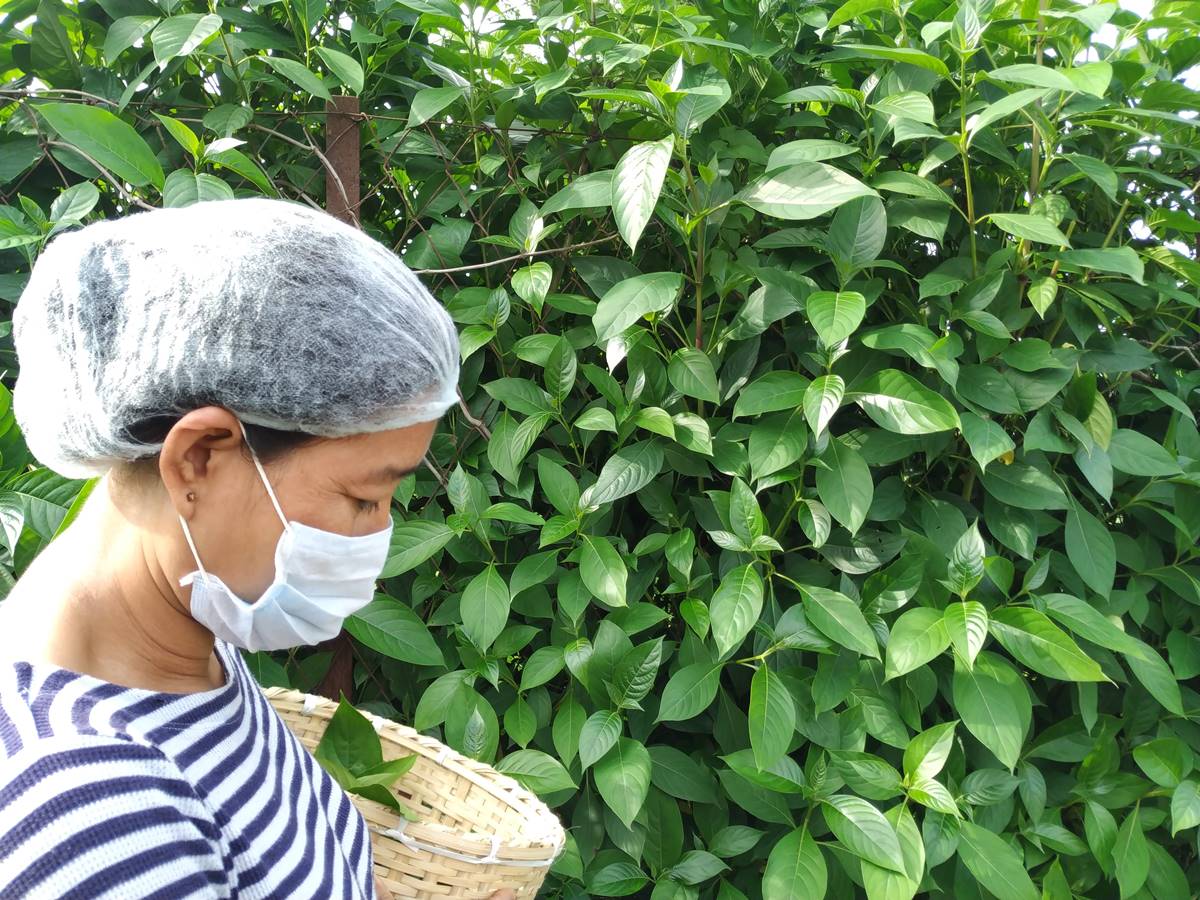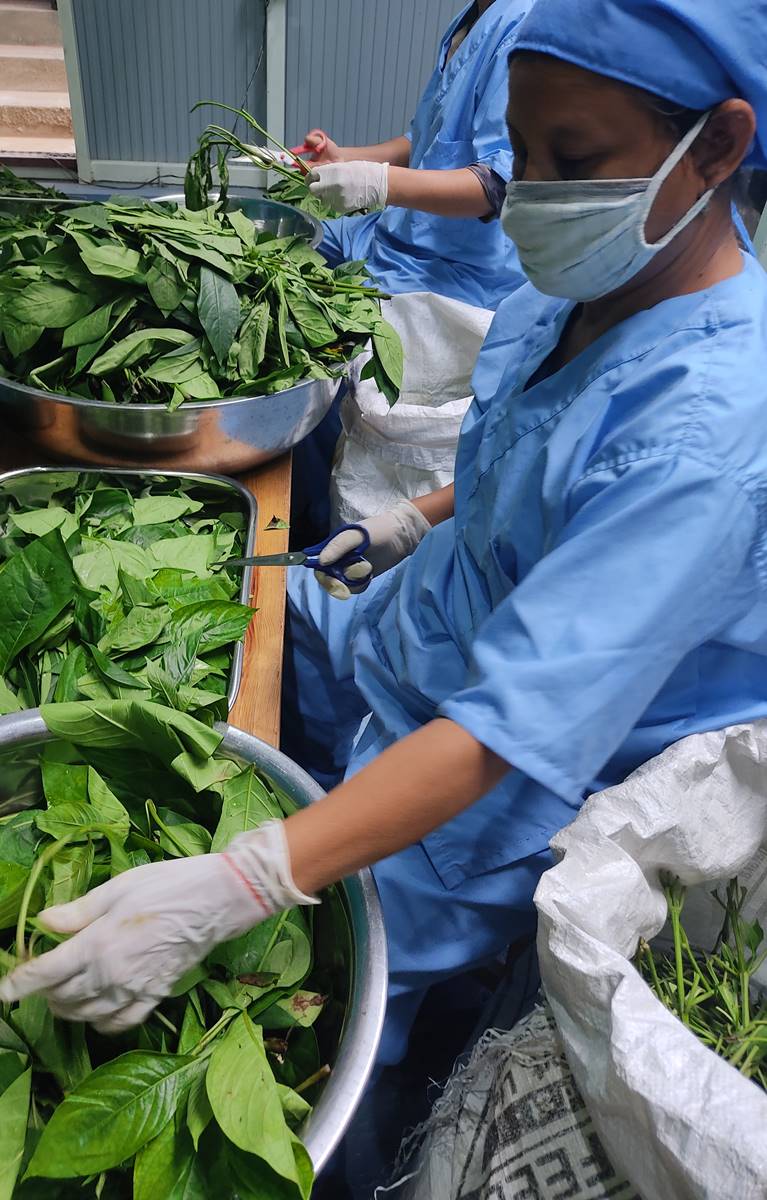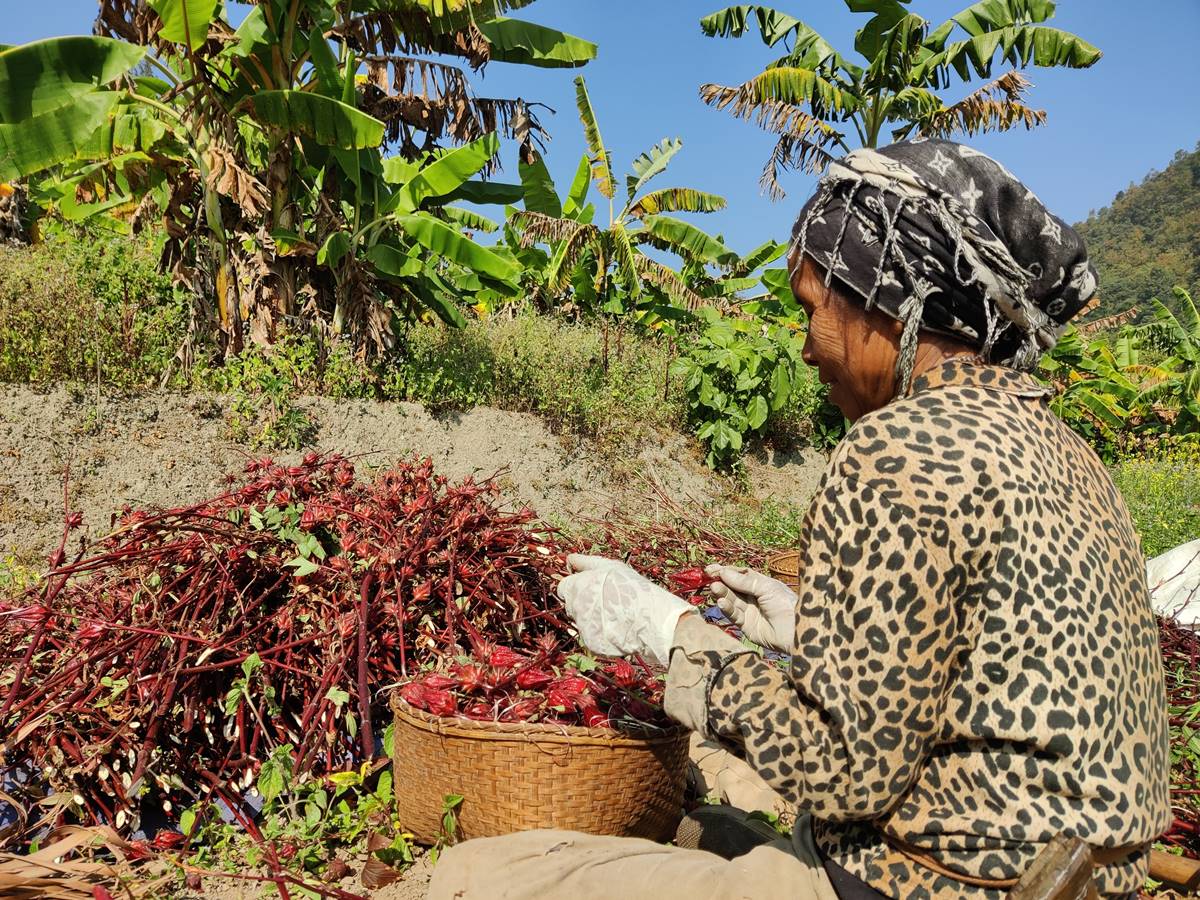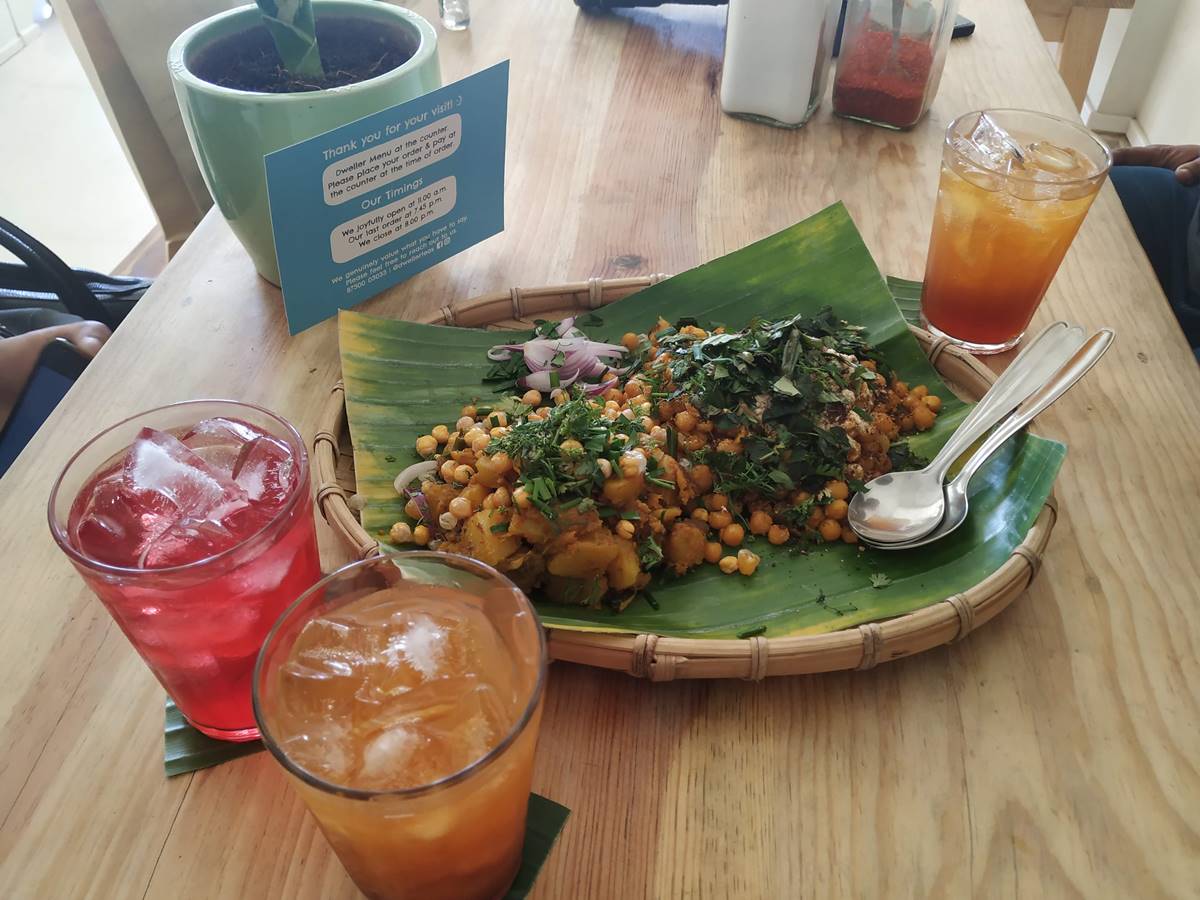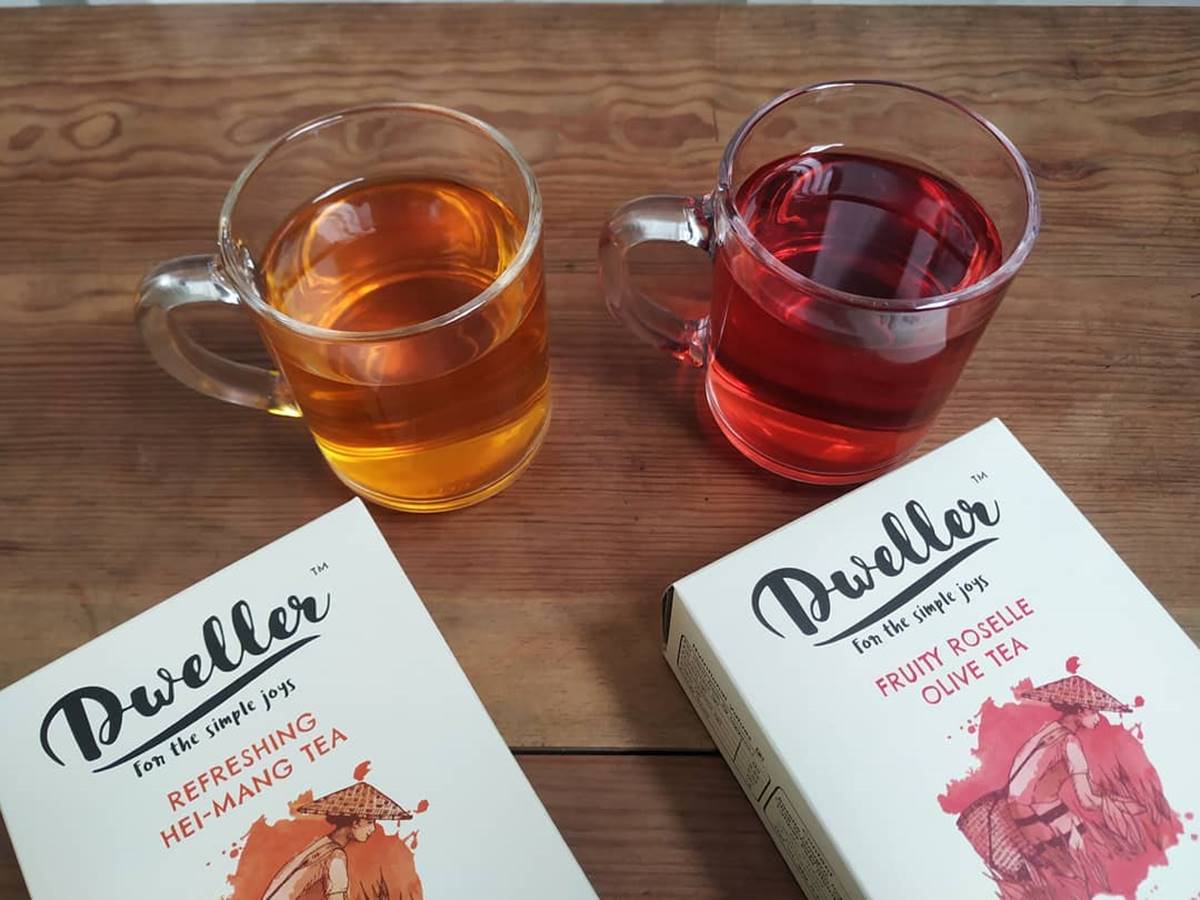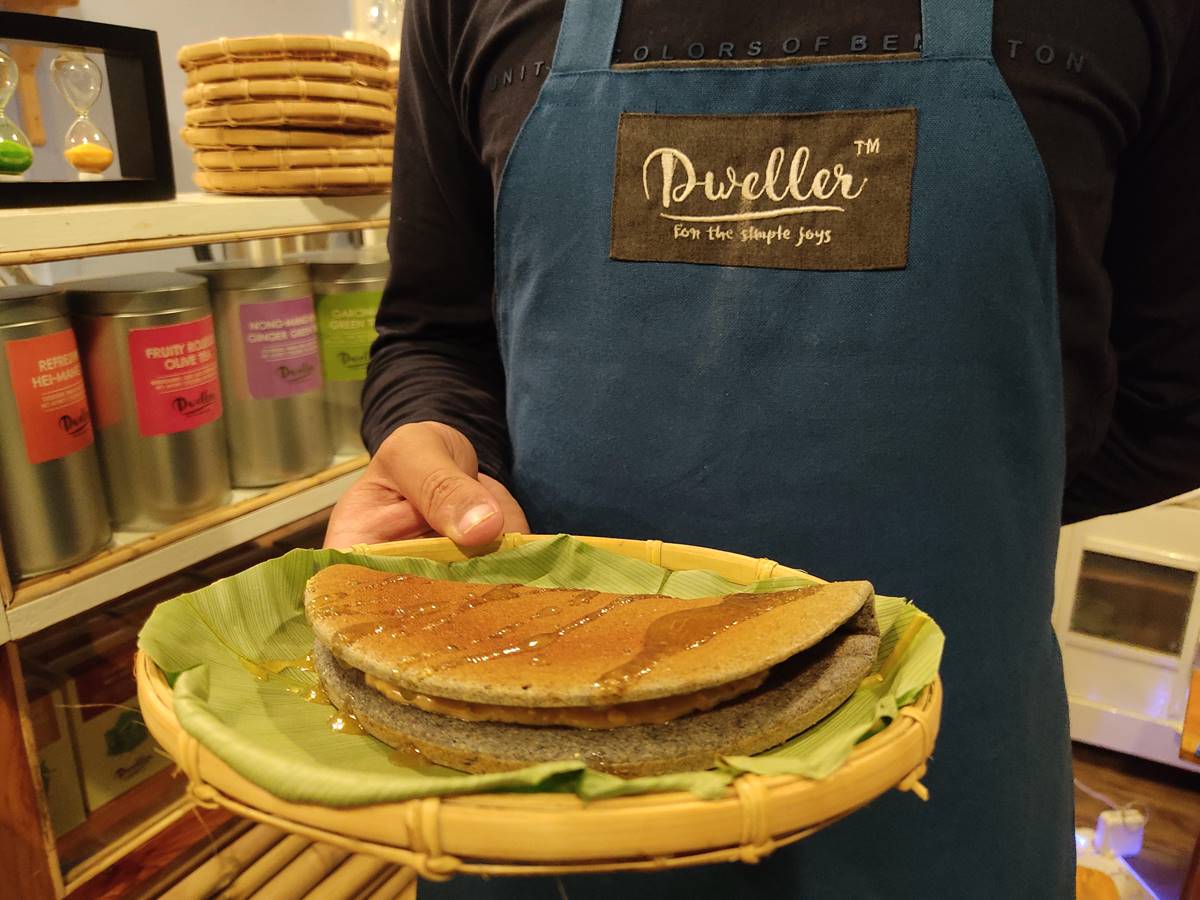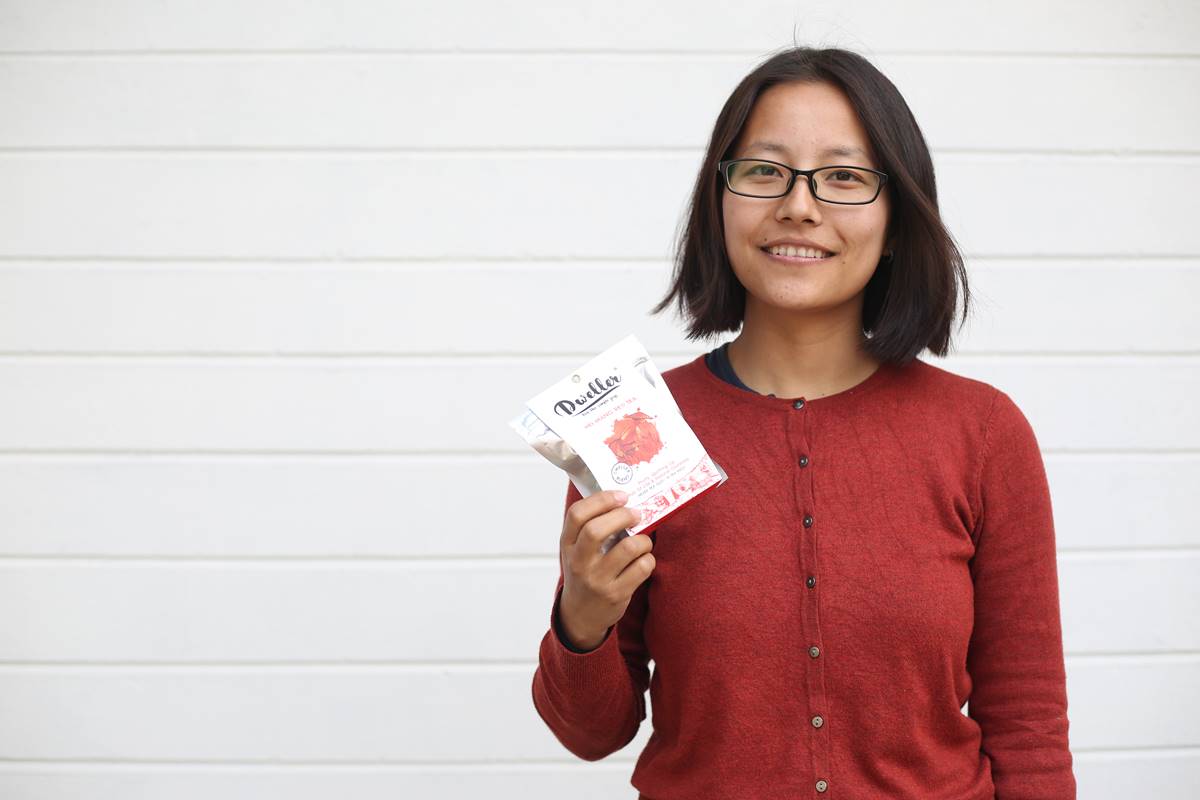
Drinking morning tea | the monk is peaceful | the chrysanthemum blooms
- Matsuo Basho
There’s a sense of contentment that only a delicate brew of tea can evoke; that feeling that all will be well with the world with just one flavourful sip. That’s how Elizabeth Yamben (Eli) feels when she settles down to enjoy a cup of her own magical concoction.
Eli is an alchemist - a tea alchemist. She brings together leaves, buds, flowers, fruits and herbs in unimaginable amalgams to produce the most subtle, yet tantalizing brews. Eli owns and runs “Dweller Tea”, where she uses locally sourced produce to make exotically flavoured teas. Much like wine, she willencourage you to savour her distillations slowly, identify theirsubtle flavour notes, enjoy their fragrance and immerse yourself completely in the experience of drinking them. And sometimes, if you’re at her café (she has three), she will even help you pair her infusions with food that she makes with local ingredients (Her black rice muffins are the rage). For Eli is a proud Manipuri – a Manipuri with a deep emotional bond with its rich soil and its produce.
Thoughts of home never left Eli when she was studying Finance and later working as a financial analyst in the UK and Singapore. Manipur tugged at her heart. In 2016, brimming with ideas to show off her state’s magnificent heritage, she headed back to India.

Tea was something that Eli always enjoyed – she would have it early morning in meditative silence, in the middle of the afternoon when she’d feel her energy levels dip or late in the evening when she was done for the day and needed something to wind her down. Tea comforted her; it reminded her of home – of the soil of Manipur and the flowers, herbs and fruit that it so abundantly produced. And so, Eli decided she would make tea her business.
Her first stop was Guwahati where she learnt about food processing and packaging. While she instinctively understood aromas, flavours and textures, she still needed to learn about how to bring them all together into a single tisane. The experts at the Indian Institute of Food Processing Technology were at hand to help. After a year-long series of experiments and tastings, Eli came home to Imphal and launched Dweller Tea in June 2017. Tapping into her childhood memories and indigenous knowledge, she started bringing together fruits and herbs with medicinal properties and creating flavours that were unique, yet familiar to the local tastebud. Her infusions were soon flying off the shelf. From six flavours, she soon started producing 11 different types of tea. Shopkeepers Imphal will tell you how popular Dweller is and how rare that is for a homegrown tea brand, especially one that was launched only in 2017. That is Eli’s magic.
There’s a pride in her heritage that shines through when Eli speaks to The NorthEast Stories: pride for the wide array of fruits and herbs that grow naturally in Manipur and of the willingness of her people to open up their hearts and minds toher exotic offerings. And in that pride is also a modesty – for as exotic as her Sumac Berry Tea or Gentle Green Tea with Lotus Leaf or Fruity Roselle Olive Tea might sound, it needs the skill of an alchemist to bring out the subtle notes that reside in the ingredients. “I believe in the goodness of indigenous produce,” she says.
When you came back home in 2016 to follow your dream – what were your initial fears? How did you deal with them?
When I came back home to start Dweller, I was up for all kinds of experiences. Honestly, fear didn’t come to mind much at that time. I was willing to make mistakes, and I knew I had a lot to learn. I didn’t have prior experience in tea, food processing or packaging, so I decided to move to Guwahati, and learn the basics of tea and focus on product development. I reached out to several people for support including spending time at the food processing institute, and I ended up creating unique flavours and infusions based on local strengths and childhood memories.
What are the real USP of your range of tea?
Dweller infusions and blends are made with indigenous fruits and herbs with traditional medicinal benefits and stories from the place of origin. They are made with real ingredients, with no added colours, flavours, or preservatives.
When you initially started, how many flavours of tea did you have? What were the challenges in opening your cafes?
We had around six flavours initially. Refreshing Sumac Berry tea (previously named Hei-mang Red tea) was the flavour thatstood out as we received encouraging responses from our customers. There was no turning back from there.
Our first Dweller Teas & Snacks café at Lamphel Supermarket (Imphal) was opened in November 2018. We’ve grown slow and organically, as the second café at Manipur University opened a year later. The third café in Shillong opened in March 2020. However, Covid changed our plans as it remained temporarily closed for months. I would say the main challenges were deciding on the menu focus and operating the café smoothly. At that time, local snacks were mostly sold on the roadside and we received mixed responses. But looking back, I am so glad we followed our intuition and belief, as that helped strengthen what Dweller stands for. It was also tricky juggling between café and the product business. However, I would say that product business took priority and café operations came into place naturally over time, purely driven by joy to serve and connect with our customers.
You are making the best use of home-grown ingredients like turmeric and fruits. Do you think a natural resource-richstate like Manipur is not leveraging its produce to the maximum? How do we address this?
I believe we are starting to realise the value and strength of home-grown produce. As a result, we are seeing a rise in start-ups and businesses based on local resources. We have an opportunity to enhance the value of home-grown produces and expand market linkages.
You have 11 flavours of tea. What are the most selling or popular flavours and why do you think so?
Our bestselling flavours include Fruity Roselle Olive, Refreshing Sumac Berry, Lemongrass Ginger, Nong-mang-kha Ginger Green Tea, Gentle Green Tea with Lotus Leaf and Turmeric Ginger with Star Anise. I think apart from Nong-mang-kha which can be an acquired taste, the other flavours are familiar to the tastebuds of both local and beyond local market customers, and yet they are unique quality infusions.
How easy was it for you to go “hyper-local” did you spend a lot of time experimenting initially with the flavours? How many hits and trials did you have to endure before you arrived at a final flavour.
It was not so easy as I had a few key things to figure out and these flavours were not available in the market at that time, so I wasn’t sure about the product market fit. But I believed in the goodness of indigenous produces, and that drove me to experiment and test the new flavours in the market. I would say that most of the flavours came naturally as they were based on the indigenous fruits and herbs I grew up with. Depending on the flavours, I took time refining the blends and some happened by chance. For instance, in early 2018, I met EneBina for the first time at Ima market. She was carrying a heavy sack of Indian olives on her back. We connected right away and Ene inspired me to create Fruity Roselle Olive, a vibrant red uplifting infusion, which is now one of our bestsellers.
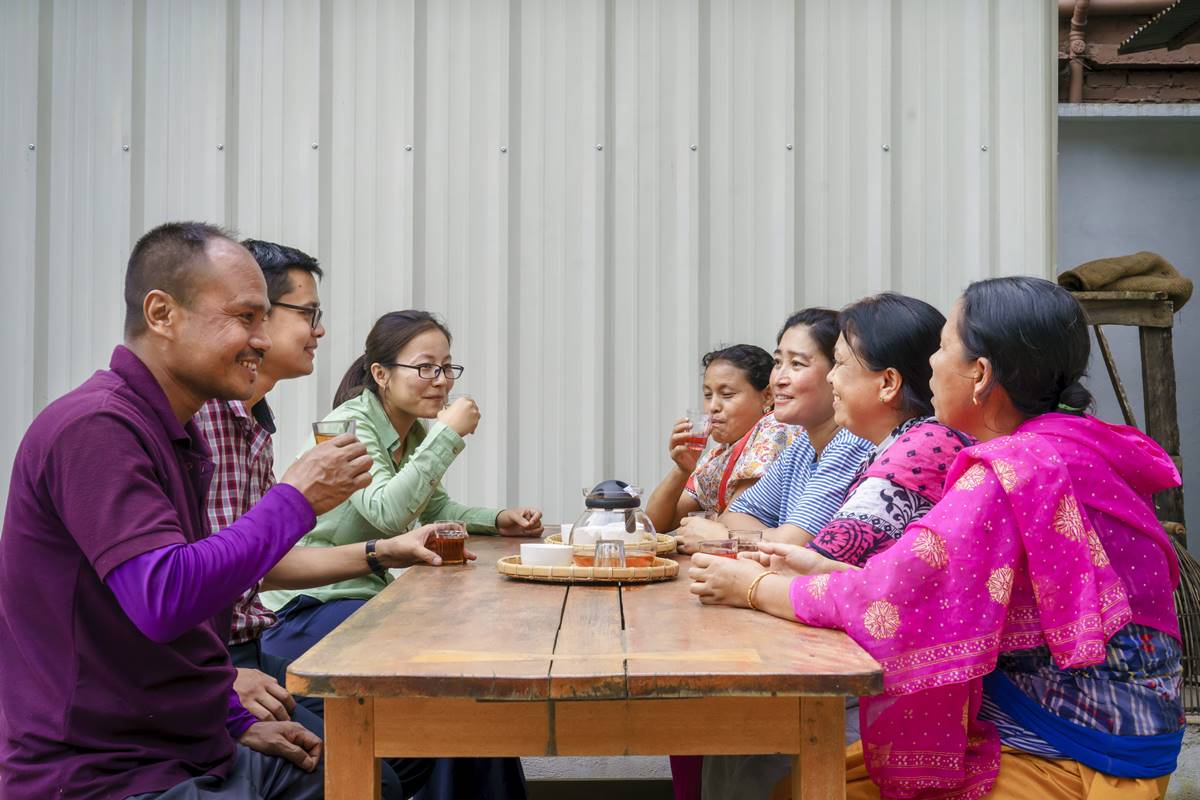
What are the three pain points of working in your sector and, do you think Manipur is geared to provide the right ecosystem for entrepreneurs?
Manipur has definitely gained momentum. There are more start-ups now in Manipur than before, which could also be driven by the government Start-up scheme. In terms of the pain points, I see logistics still causing uncertainty, higher costs and longer timelines. Even though the situation has improved, I remember the days when we couldn’t open our cafe and ship orders due to bandh and roadblocks. Due to this, we emphasised the point that a bandh is not a holiday. However,certain things are not in our control. So, we have focused on creating the right internal work culture. It takes time and lots of training in changing ingrained mindsets; it has been one of the pain points, but it has also been a privilege to be able to do the same internally.
Also, in what way do you think or feel the local market has matured? Eating out was hardly a trend. Now it seems to be. What is your view on this?
Food-related business is something which will always be in trend. However, it is a competitive market and the local market size is relatively stable. It is good news for customers as there are more options to explore.
Where all are you present today and where would you want to expand in the coming months/year?
We sell our products online, and through departmental stores in the Northeast Region and some parts of Delhi and Pune currently. In the coming months, we are targeting to expand our online presence and enter stores in the major cities of India.
How hands-on are you in your business and what is your day like from morning till you call it a day?
I am no longer involved as much as before in daily operations. I start my day with a quick team meeting in the morning. I am now mostly focused on new areas to grow the business while going through some quality checks with the team during the day. In the evenings, I opt to go to Dweller café for any meetings, and also mainly to experience being there as a customer and finding areas to improve on. By 7 pm, I call it a day, and I’m back home spending time with family and planning for the next day.
What are the activities you do on the lines of vocal for local?
At Dweller café, we’ve been organising Made in Manipur pop-up shop for the past three years. The first time it happened, it was driven by a collective discussion between Richana (founder of fine clothing brand Khumanthem), Zeinorin (founder of Hillwild) and me. The intention was to come together and promote locally made items for gifting during the festive season. Last year happened with less crowd due to Covid, 15 local brands participated. Each of their products was promoted and displayed for purchase.
Black rice bakes feature in your menu? How popular are these in the local market itself – and any plans of including more items?
The origin story of Black rice baked items is linked to our product Fruity Roselle Olive Tea. When I started Dweller, we were distributing Roselle seeds to growers. But we were not buying something they had, which was a lot of Black Rice at hand. Since then, I thought about making something good with Black Rice. And so, we started serving Black Rice muffins, cookies and pancakes to go with teas at the Dweller Café. Now, they are available in mixes too, so that anyone can make the same and enjoy at home or any place. There are plans to include more local delights including bora (fritters). Bora and tea make a great combination too!
What’s on your wish list for expansion? Where do you see Dweller in the next two years?
My list in a snapshot would be: Worldwide shipping by this year• Connect with more customers online• Enter stores in major cities
In the next two years, I see Dweller as a trusted brand in the speciality tea segment.
